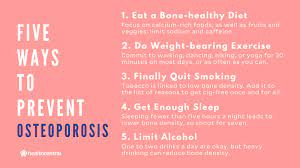Osteoporosis is an age-related condition that causes your bones to become porous and so weak that mild stresses such as bending over can cause a fracture. Any bone in your body can fracture if you have osteoporosis, but the commonly affected areas include the hip, spine, and wrist. Osteoporosis affects men and women, but women who are past menopause are more likely to develop this condition. You may not experience any symptoms during the early stages of bone loss, but once your bones weaken, you may have back pain, loss of height over time, and bones that fracture easily. Fortunately, your Plano the Riegel Center specialist may prescribe medications to prevent further bone loss.
What causes osteoporosis?
Osteoporosis develops when there is more bone breakdown than renewal. Usually, your body breaks down old bone and makes new bone; the bone renewal process is faster than the breakdown during your younger years. However, after your early 20’s, this process slows down, and bone mass decreases. By 30, most people usually have reached their peak bone mass. Your risk of developing osteoporosis partly depends on how much bone mass you attained in your youth. The higher your peak bone mass, the less likely you will develop osteoporosis and vice versa.
How can I prevent osteoporosis?
Include calcium and vitamin D in your diet
People between the ages of 18 and 50 require a minimum of 1000 milligrams of calcium every day; this amount increases to 1,200 milligrams when women turn 50 and men turn 70. Examples of calcium-rich foods include dark green leafy vegetables, low-fat dairy products, sardines, orange juice, calcium-fortified cereals, and soy products such as tofu.
If you can’t obtain enough calcium from your diet, discuss with your doctor about taking calcium supplements. However, specialists caution against exceeding 2,000 milligrams daily for people above 50 years; excess calcium is associated with kidney stones. Although unclear, too much calcium in supplements puts you at risk of heart disease.
Vitamin D enhances the body’s ability to absorb calcium and promotes bone health. You can get some vitamin D from sunlight, but this is usually not a good source for people in high latitudes. People who are housebound and avoid the sun to reduce the risk of skin cancer may also not get adequate vitamin D from the sun. You can also get vitamin D from salmon, cod liver oil, and trout; some types of milk and cereal are also fortified with vitamin D. If you have limited sun exposure, consider using a supplement.
Exercise
Exercise is good for bone health; it helps strengthen your bones and slows bone loss. You can benefit from exercise regardless of when you start, but you gain the most benefits when you begin exercising earlier in life and regularly. If you are not sure about the right exercises, consider working with a fitness trainer. Your trainer may create an exercise schedule with strength training exercises, weight-bearing, and balance exercises. Strength training exercises help strengthen your bone and muscles in the upper spine and arm.
Consult your doctor today at The Riegel Center if you have further questions about osteoporosis.
